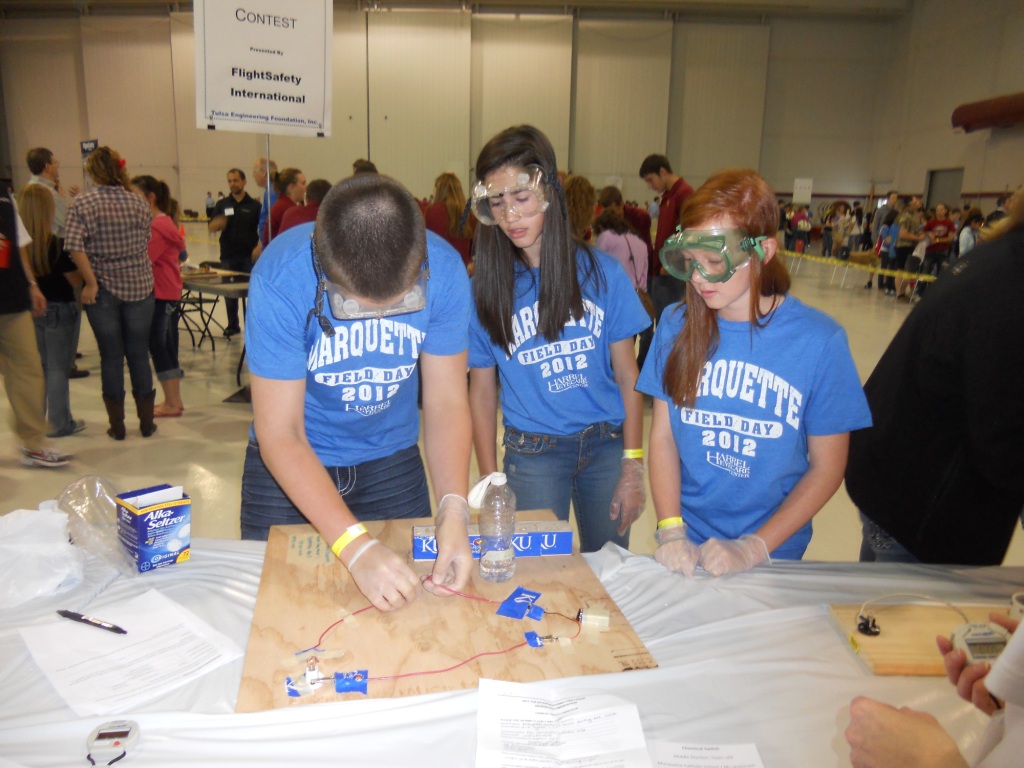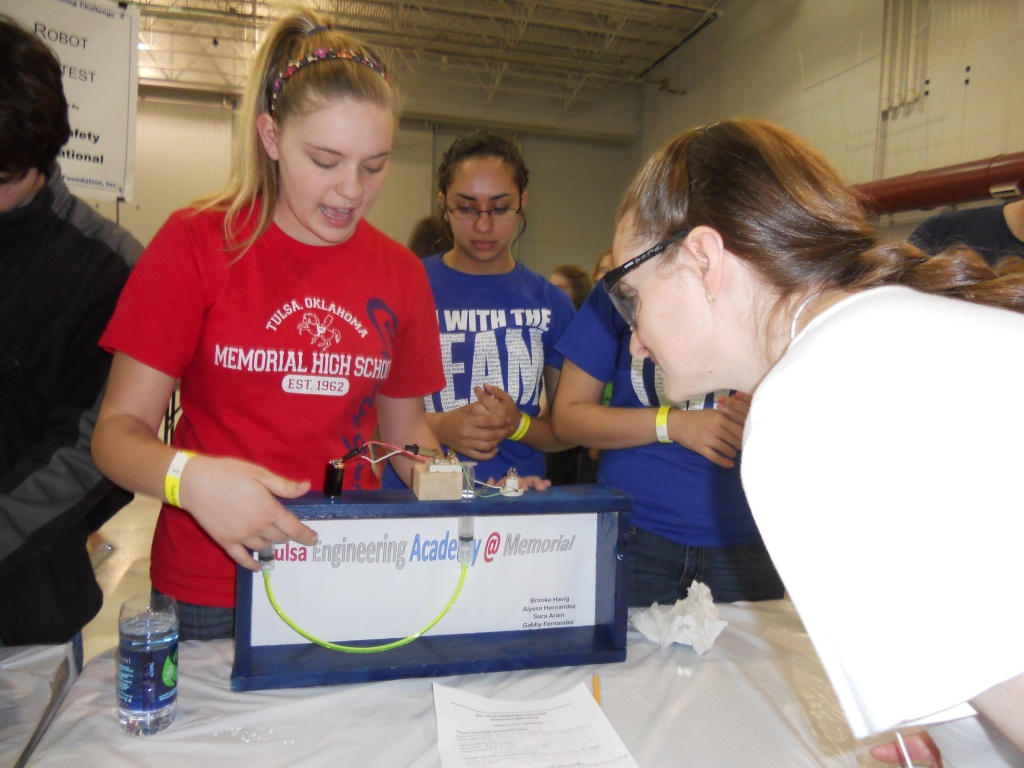
How do we, as chemical engineers, inspire the next generation that will follow in our footsteps? Here's one great example...
The University of Tulsa (TU) Chemical Engineering Department hosts two annual competitions designed to attract K-12 students to study engineering: (1) a high school version of AIChE's popular Chem-E-Car competition and (2) a "Chemical Switch" competition intended for even younger students. Both competitions are organized by TU faculty members Dr. Laura Ford and Dr. Christi Patton Luks.
The High School Chem-E-Car competition is held each spring on the TU campus during the "dead days" just before final exams. High school chemistry teachers use the competition as a class project or an after-school activity. Prior to the actual competition, TU students and/or faculty frequently meet with these teams during the year to make presentations, give advice, and respond to concerns. The rules for the high school student have been modified from the AIChE rules so that the high school teams only have one variable (distance) to calibrate and they are allowed to use commercial batteries and electric motors to drive the vehicle so long as a chemical reaction stops the vehicle. As a safety precaution, teams are limited to using chemicals with NFPA ratings of 2 or less and acids must be less than 3 molar. Hoods and chemical disposal and clean up materials are provided on site.

After hosting the Chem-E-Car competition a few times, the TU organizers found that the high school teachers were frequently uncertain about how to coach a team to develop an entire car for the event. Therefore, they developed the Chemical Switch competition as an adaptation of this design goal, allowing students as young as 6th grade to participate. In the Chemical Switch event, student teams are asked to use a chemical reaction to turn off a light bulb, as close as possible to a target time of 20 seconds. Complete rules for the Chemical Switch competition are posted here.
The Chemical Switch competition is held at the annual Tulsa Engineering Challenge (TECh), which is hosted by the Tulsa Engineering Foundation, an alliance of 19 engineering organizations and five colleges/universities. TECh always attracts several hundred students from area schools to take part in 14 separate engineering competitions as well as technical displays and hands-on activities.
Dr. Christi Patton Luks says that she is always gratified when she overhears students' discussions of what they could do better next time. She says, "I know they are seeing more than just how to balance reactions and pass their science tests. These competitions get them to begin to think like engineers."


